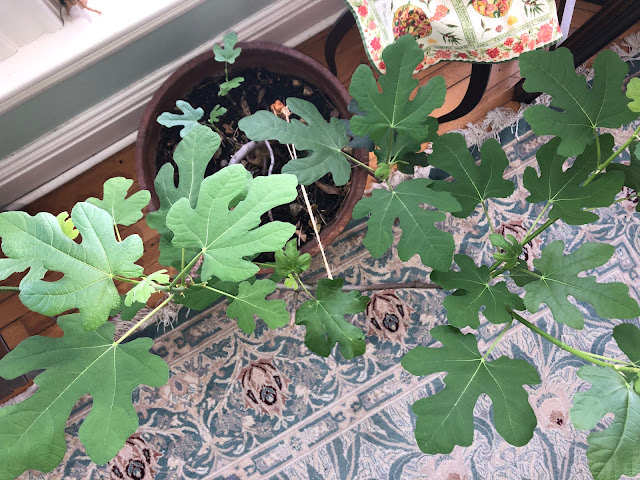Ravenswood bureau chief Caren Jeskey is under the weather—not COVID, she assures me—and so will not be writing her usual Saturday report for today. All of us in the extended EGD community direct our best wishes and focused laserlike healing karmic energy (see, I can get with the program) toward her speedy recovery.
But with the Olympics dominating television (or so I'm told; I don't know, I haven't watched a second) I thought I would reach back into the vault of a previous take on the biennial blowout. A reminder: you don't need China to dislike the Olympics. This is from a time when the column filled a page, and I've left the original headings.
OLYMPIC MOMENTS
Gosh I'm enjoying the Olympics. Which is odd, because typically I disdain them. The summer Olympics are a weird conglomeration of tedious activities you wouldn't consider paying attention to the previous 206 weeks. ("Not now, Honey, the high jump is on!") And the Winter Olympics—how many times can you watch guys skiing down mountain sides? It's worse than golf.
But this year is different. I couldn't breathe a word against the Olympics; in fact, I'm finding the Olympics a pleasure, because the wife and boys are really enjoying them. By 7 p.m. they're parked on the sofa, rooting for the old red, white and blue. Which gives me about two hours alone to relax and read a book, uninterrupted, confident that the shouts filtering up from downstairs are mere enthusiasm, and not some inter-boy crisis crying out for Dad's immediate mediation.
Oh, I'll slide down for a few minutes—don't want them to think I'm standoffish—and watch a bunch of spandex-clad loonies flying around a patch of ice. (They really should release some polar bears or something to give the race a bit of pizzazz). Then I excuse myself and return to my book. I'll miss the Olympics when it's over.
ON THE NIGHT TABLE
The book I've been reading is Bill Bryson's A Short History of Nearly Everything. The smoothest of writers, Bryson takes you by the hand and glides you through astrophysics and chemistry and biology and all that stuff you learned in high school and promptly forgot.
In trying to humanize the science, Bryson tells the stories behind the various big discoveries, and here it becomes really interesting, because in every case—literally every case—the pursuit of light and knowledge is accompanied by a messy catfight of super-sized egos clawing each other's reputations to tatters. You'd almost think it was a history of backbiting and bumbling which only incidentally mentions stars and fossils.
Deep in the book he quotes German naturalist Alexander von Humboldt, in a line too delicious not to pass along: "He observed that there are three stages in scientific discovery: first, people deny that it is true; then they deny that it is important; finally they credit the wrong person."
More than one researcher at Fermilab or the University of Chicago will want to embroider that on a pillow.
SOME ARE DISAPPOINTED
In checking into Alexander von Humboldt enough to call him "a German naturalist," I discovered that a variety of things are named after him—a penguin, a lily, a skunk, a shrub and Humboldt County, Iowa, plus the city of Humboldt, halfway between Des Moines and Sioux Falls, population 4,452. How did that happen?
The Humboldt County Web site gives no clue, but begins with this charmingly self-effacing statement: "Humboldt creates a favorable impression on most every visitor to this scenic city . . ."
Perhaps the few who are unfavorably impressed feel Humboldt has restrictive parking for such a small town. You can't park your car on the street at night between November and May— unless you are a physician making a house call, which is lovely. Otherwise you risk getting a ticket that will set you back $20.
The cost of living is a heck of a lot less there. You can buy six—count 'em—six spaces in the Humboldt Union Cemetery for $750, though if you want to erect a headstone the city charges you a fee, and that fee is $2.
Humboldt is not without controversy—it recently asked San Francisco welfare authorities to stop sending homeless people to Humboldt County. The City by the Bay has a program where homeless people can receive a one-way bus ticket anywhere in the country, and of the thousand or so shipped eastward, 13 chose Humboldt.
HELP FOR THE HOMELESS
San Francisco insists that its bus ticket program isn't just designed to get the homeless out of town, but to send them to their own former homes. Social workers—in theory—are supposed to ascertain that people using the program are actually going someplace where they'll be taken in and given help and support.
That is the ideal solution to the homeless problem—help 'em find a home. Even the hardest heart—and it's all I can do to not snarl "scram!" as I hurry past panhandlers on some days—has to soften after the story about Raymond Power Jr., the disturbed New York lawyer and Vietnam vet who ended up on the streets in Chicago, living in a shelter with no memory of who he was or where he came from. You wouldn't want the city to have put Power on a bus and shipped him just anywhere. Would you?
—Originally published in the Sun-Times, Feb. 22, 2006












